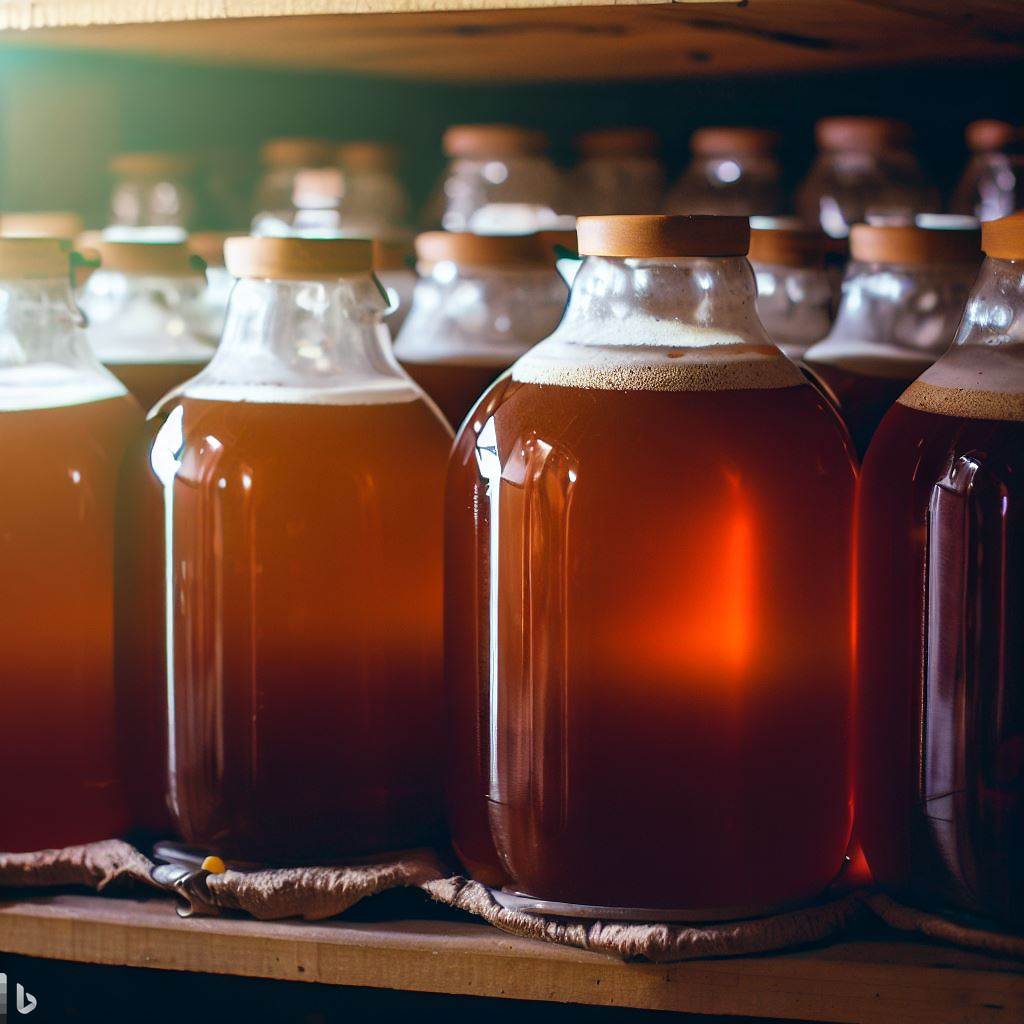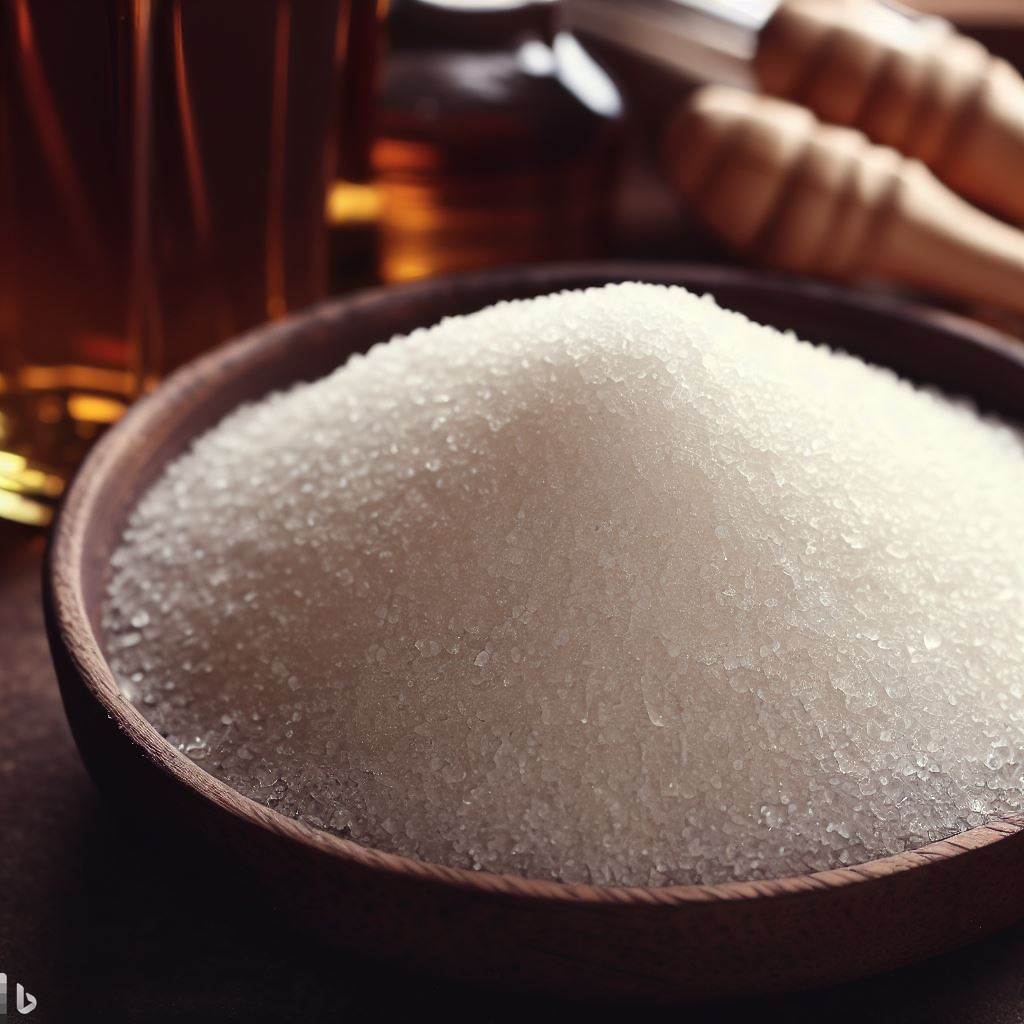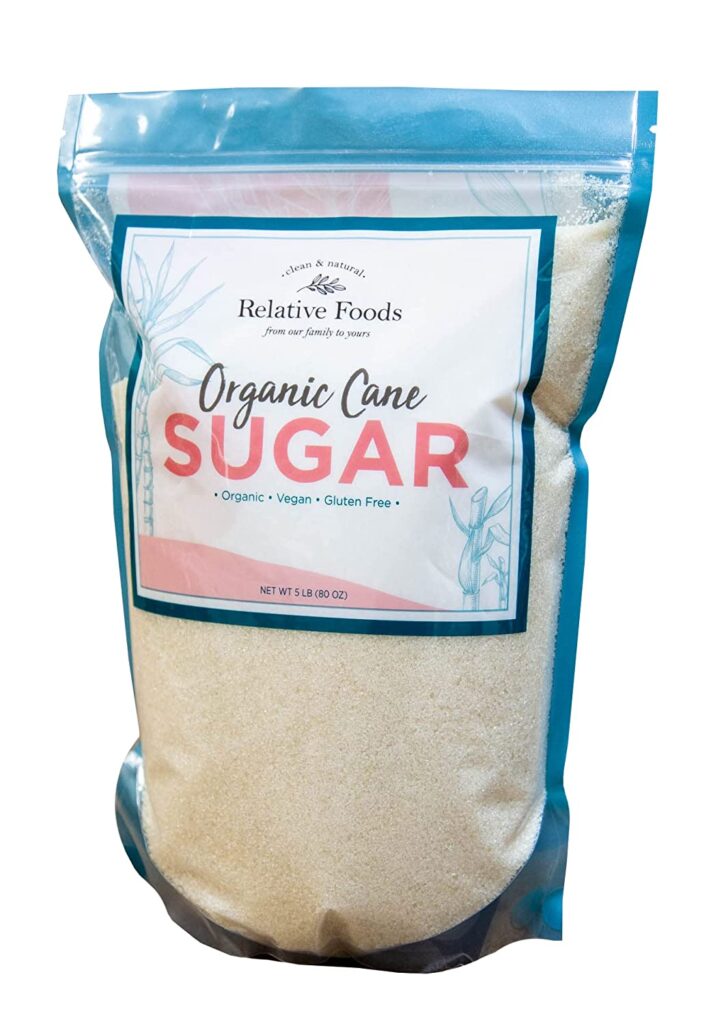Kombucha, has experienced a remarkable surge in popularity in recent years. This article explores the health benefits of kombucha, its nutritional value, and how much sugar it contains. As well as the various varieties available. While many believe kombucha offers health benefits due to its fermentation process and probiotic content, scientific research on its effects on humans is limited.
Nutritional Facts and Caloric Content:
A single 8-ounce serving of kombucha provides approxamately 29 calories, 0g of fat, 8g of carbohydrates, and no protein. It is worth noting that kombucha is an excellent source of B-complex vitamins. Kombucha also contains thiamin and niacin. The carbohydrate content may vary depending on the brand and preparation. Some varieties do contain added sugars from fruit juice.
On to the Sugar…here’s a video.
Kombucha typically contains varying amounts of sugar, depending on the brand and preparation. On average, an 8-ounce serving of kombucha contains around 8 grams of carbohydrates. Carbs are pretty much made up of sugars. However, it’s important to note that the sugar content can differ based on the specific brand. Additional fruit juice that may be added during the fermentation process. Some kombucha varieties may have higher sugar content than others, so it’s advisable to check the nutrition label or ingredient list for accurate information.
While kombucha does contain sugar, it’s worth mentioning that the fermentation process helps to break down some of the sugars. This means that the final sugar content in kombucha is typically lower than that of the initial ingredients. Additionally, the presence of beneficial bacteria and yeast in kombucha can contribute to the fermentation process and further reduce the sugar content. However, it’s important to be mindful of the sugar content if you have specific dietary concerns or health conditions, such as diabetes.
If you’re looking for a lower-sugar option, you may consider choosing kombucha brands that use less fruit juice or opt for plain or unsweetened varieties. Some brands also offer sugar-free or low-sugar options for those who prefer to minimize their sugar intake. As always, it’s a good idea to read the nutrition label and ingredient list to make an informed choice based on your personal dietary needs and preferences.
Health Benefits
While most research on kombucha has been conducted in laboratory settings or on animals, it is important to note that the specific health benefits for humans are not yet fully understood. However, raw kombucha is considered a probiotic food, which can be beneficial for digestive health. It may also contain compounds such as catechins and isorhamnetin, which have potential antibacterial and antiviral properties. Further research is needed to validate these findings.

Potential Adverse Effects
Individuals with compromised immune systems or those taking medications sensitive to stomach pH levels should exercise caution when consuming kombucha due to its acidity. Diabetic individuals and those sensitive to caffeine should also be mindful of their kombucha intake. Excessive consumption of kombucha, especially if it has fermented, can lead to increased alcohol content, which may be problematic for individuals who need to avoid alcohol. Reports of liver damage and metabolic acidosis have been associated with excessive consumption, although these cases involved individuals with pre-existing conditions.
Varieties and Availability
Kombucha is available in a wide range of flavors and blends, made with different types of tea and additional fruits, vegetables, and herbs. It can be found year-round in grocery stores, and homemade kombucha is best consumed within one to three months.
Storage and Food Safety
To ensure safety, kombucha should always be refrigerated, whether store-bought or homemade. Proper handling and refrigeration under sanitary conditions are crucial to prevent bacterial growth. It is important to note that raw kombucha carries a risk of foodborne illness, while pasteurized kombucha is a safer option as it eliminates harmful bacteria but also destroys probiotic bacteria.

Preparation
Bottled kombucha tea can be found in the natural foods section of most grocery stores and health food stores. For those interested in making their own kombucha, a kombucha mother or SCOBY (Symbiotic Culture of Bacteria and Yeast), black, green, or white tea, sugar, and water are needed. The tea is brewed, sugar is added, and the mixture is left to cool before adding the SCOBY. Fermentation takes place over time, and the resulting kombucha can be enjoyed hot or cold.
Conclusion
Kombucha’s popularity continues to grow, driven by its potential health benefits and the availability of various flavors and blends. While it is a low-calorie beverage and a source of B-complex vitamins, further research is needed to fully understand its effects on human health. It is important to consume kombucha in moderation and be mindful of any pre-existing health conditions. With proper storage and handling, kombucha can be enjoyed as a refreshing and potentially beneficial beverage option. Why don’t your try some kombucha today?
Want to Learn More, read these blogposts:
Top 10 Health Benefits of Booch








